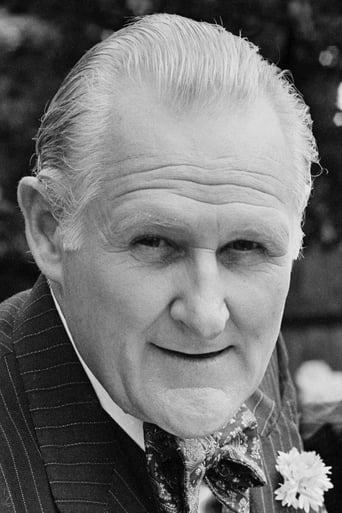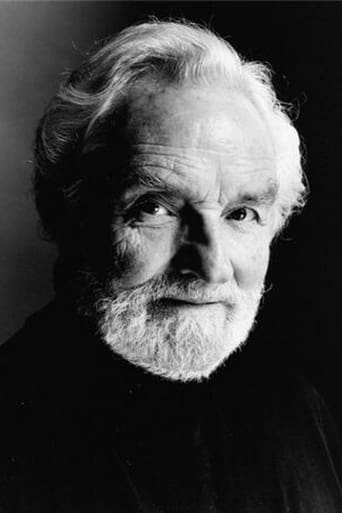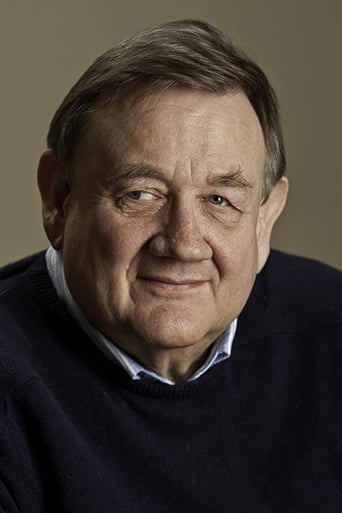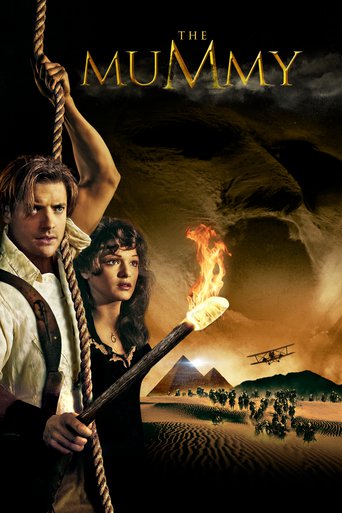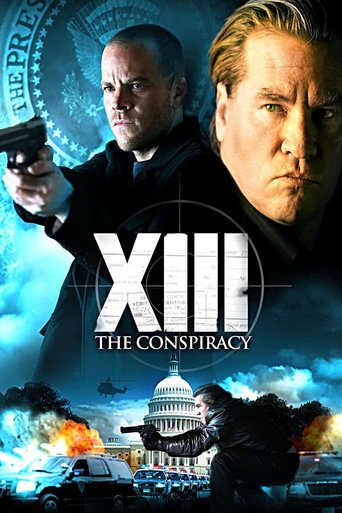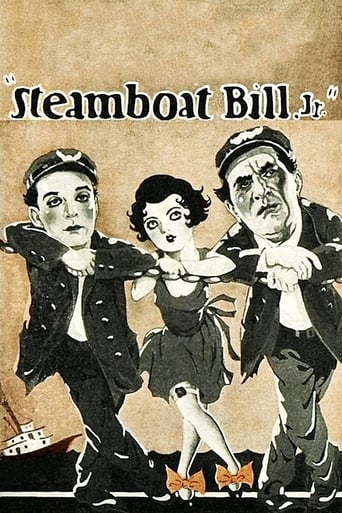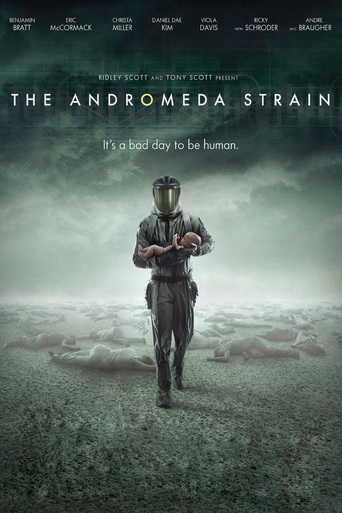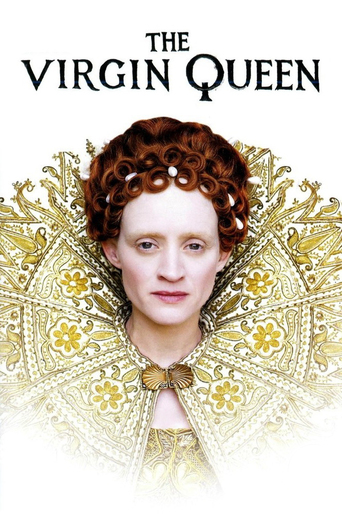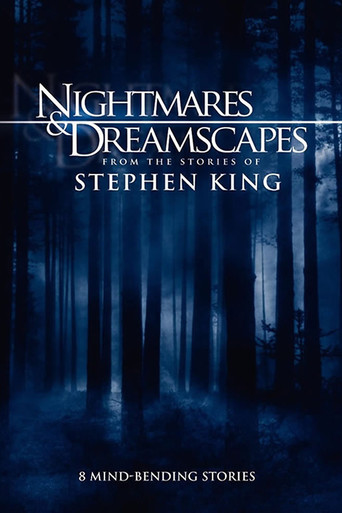

Dandelion Dead (1994)
This is a dramatisation of the true story of Major Herbert Rowse Armstrong, a solicitor and magistrate's clerk who lived in the small Welsh town of Hay-on-Wye. In 1921 he was arrested and charged with poisoning his domineering wife, Catherine, and later attempting to poison a business rival, Oswald Martin, by administering arsenic to them. At his trial, Armstrong claimed that he had bought the arsenic simply to kill the dandelions on his lawn. However he was convicted of murder and executed in 1922.
Watch Trailer
Cast


Similar titles
Reviews
Just what I expected
It’s an especially fun movie from a director and cast who are clearly having a good time allowing themselves to let loose.
By the time the dramatic fireworks start popping off, each one feels earned.
By the time the dramatic fireworks start popping off, each one feels earned.
This production brought to bear some of the finest English talent of its day, and captures a bygone time and place in a way I would say only the English could. Michael Kitchen is gentle and always personally appealing, and he has realized a heart and soul here--a good man driven to do truly bad things out of a desperation he dared not face and a wife no sane man could bear. The wife is wretched, cruel, and self-centered; dutiful on the surface but the very picture of a ball-breaking witch, and a mother bent on ruining everyone's life around her while feeling herself the victim and thinking she has the whole world fooled. I halted after the first segment, feeling no desire to watch it all, but I read accounts of the real story and the next day saw the rest of the show. It is beautifully done, and Michael Kitchen is always mesmerizing. Chloe Tucker--an actress I had not seen--is a wonderful surprise, turning in a totally believable performanc as the oldest Armstrong daughter, and all the cast rises beautifully to the material. DANDELION DEAD will haunt you.
I really enjoyed the film, I felt that each character was well portrayed and (for want of a better word) fairly portrayed. I often find that in this kind of film it is all to easy to lay blame at a single character, in this case the Major. Instead the case is shown evenly and without bias, the audience can see "whodunit" but are also left to conclude for them selves who the real culprit was, this prompted a very long discussion in our house!The major is shown a good man with a dreadful wife, who after 20 (I think) years of marriage he'd had enough of being bullied, controlled and embarrassed in front of his peers and clients. Who, whether he did kill his wife or not, was arguably justified in his act. However he was also well shown to lose the plot a little between the first and second parts of the film. His decision to kill Martin was far more calculated and inexcusable.Martin ( by David Thewlis) was well acted - shown as a nervous and insecure young man who only gains any confidence after his marriage, and is most secure at work. This makes him a direct threat to Armstrong's business, and in line as the next victim.I really enjoyed the film - and would whole heartedly recommend the film to everyone - be aware though it's very moreish, and the 2 halves together make 3 1/2 hours of telle - we all got cramp from sitting down for the whole lot - but perhaps your more patient than us!
The revival of interest in Mike Hodges prompts another look at this 1994 mini-series, directed while he was in the feature-film wilderness. Like nearly all he touches, it is about desperate violence. However this is no 'Get Carter' but a well-mannered, low-key account of the sort of cause celebre Orwell lamented in 'Decline of the English Murder' as a casualty of the Second World War. Major Armstrong's murder trial gripped Britain. The Attorney General himself conducted the prosecution, and the famous 'Daily Express' editor RD Blumenfeld narrowly escaped imprisonment for contempt when he published a photograph of the defendant's eyes.Herbert Rowse Armstrong ('Major' was a temporary Great War rank, snobbishly retained) was a pillar of the remote community of Hay-on-Wye, a market town on the England-Wales border. He was a churchwarden, master of the local Freemasons lodge, a Cambridge law graduate, the district's leading solicitor and clerk to three magistrates' courts. In April 1922 he was convicted of poisoning his wife and hung: the only British solicitor ever to suffer such ignominy.During war service Armstrong-- a doting but henpecked husband of a neurasthenic wife and a father of three-- had met a charming widow, named in the film but not when she was a witness. Armstrong had also contracted syphilis in France, though not from her. Returning to Hay, he had developed a strong resentment of Oswald Martin, a younger rival in the law who had set up literally opposite Armstrong's somewhat rundown premises over a shop. The prosecution alleged that Armstrong poisoned both his wife, for her money, and Martin for harassing him over the payment of monies owed to a client.The film does not adjudicate on Armstrong's motives or his guilt; it allows Michael Kitchen, in a bravura display of restraint, to plead his cause or incriminate himself as the viewer judges. Kitchen had always been a little too intense for any given role, but here he achieves the consummate screen actor's gift of conveying much with very little: a raised eyebrow, a twitch, pursed lips, the slight contortion of a frail frame. (Armstrong weighed only seven stone and was 5 feet 5 tall.) His buttoned-up demeanour is matched by a voice which protests mildly or pleads gently: a sinister mockery when asking after a victim's health, or merely the politesse of a gentleman attorney?Hay is a fading backwater, admirably designed by Voytek in shades of brown and black, lightened by Armstrong's escape to the hills with his lady love or interludes of uncertain happiness at home with his three children. In the narrow streets neighbours peer, gossip and nurse growing suspicions. The pace is relaxed, the expected moment when Armstrong is either caught in the act or proved innocent never arrives, and the four hours' traffic ends on a note of irresolution which may leave some feeling cheated.It is pleasant to record that one detail the audience might suspect was a bit of scriptwriter's trimming was true: Armstrong really was arrested on New Year's Eve, and had to see 1922 in from a cell.Other, more material facts are also largely respected. Emphasis in Michael Chaplin's screenplay is on the events, not on the trial at Hereford Assizes. As Curtis Bennett (Denys Hawthorne), the defending counsel, argued, Armstrong's motives for the alleged crimes were thin indeed. He was said to have murdered his wife for her money and to be free to remarry; yet he was solvent, her legacy to him lay untouched for a year till he had to draw on it for his lawyers' bills, and he never proposed to his inamorata. And would he have fed Martin a poisoned scone ("excuse fingers") just because of a business dispute? Against that, why did the Major divide the arsenic he claimed he bought to kill weeds (hence the film's title) into small packets, and why was he still carrying one around when he was arrested, instead of leaving it safely locked up at home? The high point of the trial came when Sir Charles Darling (Ralph Nossek), one of the most famous judges of the day, effectively took over the prosecution and grilled Armstrong, who briefly lost his iron composure.The jury took three minutes to decide that he was a wife murderer. The Major protested his innocence to the end. The Martin charge lay on the file; Martin died only two years later, depressed and showing signs of continuing damage from poison. But in 1988 a solicitor who lived in Armstrong's old home wrote a book exonerating him and seeking to show how Mrs Armstrong might have committed suicide.Connoisseurs of 'Inspector Morse' will have no trouble identifying the composer whose long chords and piano plinks punctuate 'Dandelion Dead'. Among supporting performances, Chloe Tucker is outstanding as the Major's owlishly bespectacled and gawky eldest daughter Eleanor, oscillating between love and suspicion. But it is Kitchen's film. He found the right register for the first time, enabling him to rise from the showiness and petulance of his young-man performances towards the calm authority of 'Foyle's War'. He may be the next Jason or Thaw.
This story,if it is really based on truth,suggests one of the greatest miscarriages of justice imaginable.But,not,you might think,for the same reasons most people would imagine.I happen to have my own points of view.Consequently,in my opinion,Sarah Miles is one of the biggest catastrophes to every appear on screen.She can't act,looks like a horror,and has no sex appeal at all.I can't understand what anybody sees in her.And hanging a man who poisoned her is a true crime.He should have been declared a hero,been awarded a medal,had stamps struck in his honor,and had a holiday declared for his gallant action.


